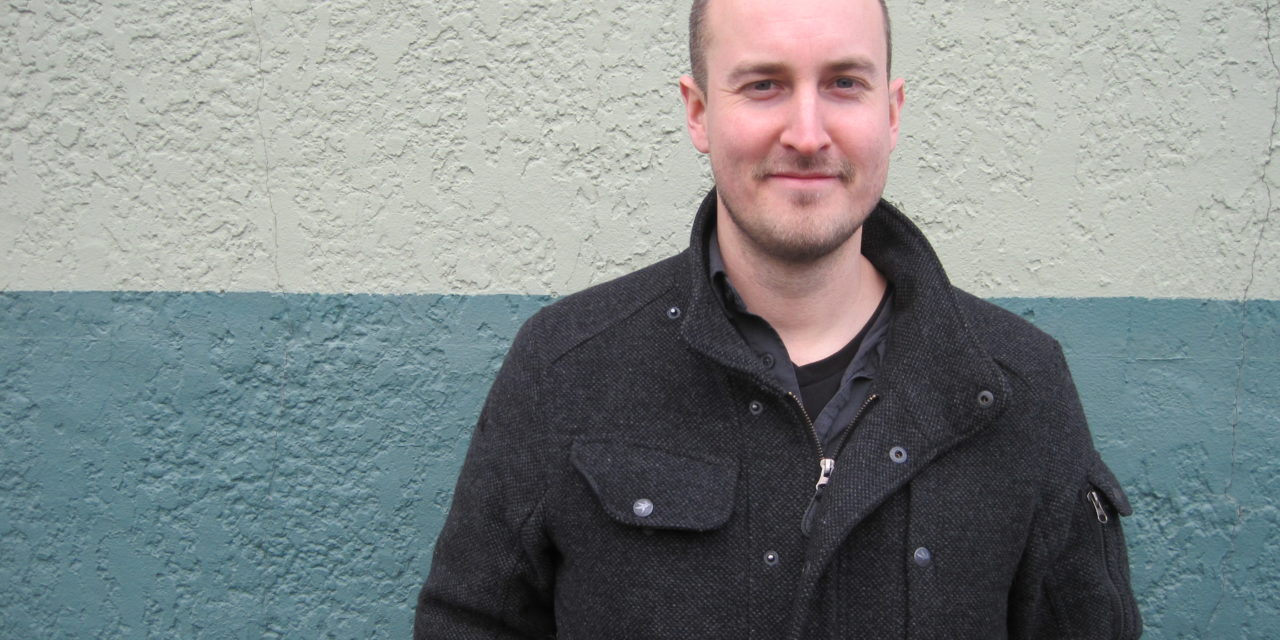What’s your name and your usual job title(s)?
I’m Erik Virtanen and I produce and create documentary series. I still hang on to my screenwriter title as a badge of honour too, but that’s a bit secondary these days.
How did you get started working in factual TV?
I actually started in fiction in Montreal, doing all sorts of writing assignments, oftentimes for pennies – punching up and ghostwriting scripts, writers’ room stuff, and writing one-sheets, treatments, and bibles for hire. My first paid gig was adapting a novel to a treatment for an Oscar-winning director for $200. I photocopied the cheque because it was a very proud moment. It was a roller coaster existence – and isolating (even moreso because my French wasn’t great). So to socialize more with human beings besides ordering a coffee at Starbucks, I started volunteering at an audio post house as well. It was probably one of the healthiest things I’ve done. Eventually, they hired me to manage the teams there, help grow the place, and manage the finances. We had a great run (it’s still doing well, I believe), doing like hundreds of episodes of TV for all sorts of networks, video games, and various films.
During those years, I got invaluable storytelling and pitching experience on the writing side… and at the sound studio learned post workflows, contracts and negotiations, accounting, the joys of keeping a facility afloat, and managing (sometimes stressed out) creative people. So I guess it was a natural step to shift into producing, which can drift between those extremes of development and post, and also beyond.
I had the opportunity to jump on board a feature doc as co-producer with a director I met at the sound studio, and we sold it to CBC documentary Channel. Then I produced another feature doc that had a nice festival run around the world and won awards. It wasn’t my intention to work in factual, but I unexpectedly found that my background in fiction transferred nicely into that world. I also really enjoyed working with executives and business-savvy people too on the financing and distribution side. After that, I moved to Vancouver and connected with Rogue Productions, and have been developing and producing doc series with the talented people there since.
I should note that I’m mentioning the 1% of things that went right in my career. 99% of what I’ve done has fizzled into nothingness.
What do you consider to be your career highlight(s)?
Hm… I saw Bill Murray once at a bar. That was pretty neat. Getting a Telefilm grant to write a screenplay was a big moment. I got it very early on without a writing credit because my co-writer and I found a loophole in the system. It helped make me a legitimate writer in Montreal among filmmakers and also made me feel a bit less weird mumbling the phrase “I’m a screenwriter” when people asked what I did for a living. Another highlight was when a documentary I produced got optioned by a pretty big Mexican actor and his prod-co for a fiction re-telling (we had smartly acquired the life rights after someone told us that was smart to do).
But I guess if I slow down and reflect for a second, there is a long trail of amazing mentors and people I’ve met over the course this journey – filmmakers, producers, writers, talent, musicians, and artists of all sorts. I feel very lucky in that sense because I’m genuinely interested in people who devote their life to art and I enjoy hearing what they are up to. So I’d say overall the highlight is getting to drift around and spend time with all sorts of interesting artists and personalities.
What’s the strangest thing you’ve had to do working in factual TV?
I haven’t done any strange things, I’m happy to say, but I’ve definitely seen strange things. Though I should probably just politely move on to the next question…
What’s something interesting/unusual about you that most people don’t know?
I like to play guitar and write songs. I performed around Canada and the US years ago with my now-wife and we got to record with some music producers we really look up to.
What’s your ultimate career aspiration?
I’ve prided myself on never getting a real job after university. So I’d say continuing to do that is my ultimate career aspiration.

